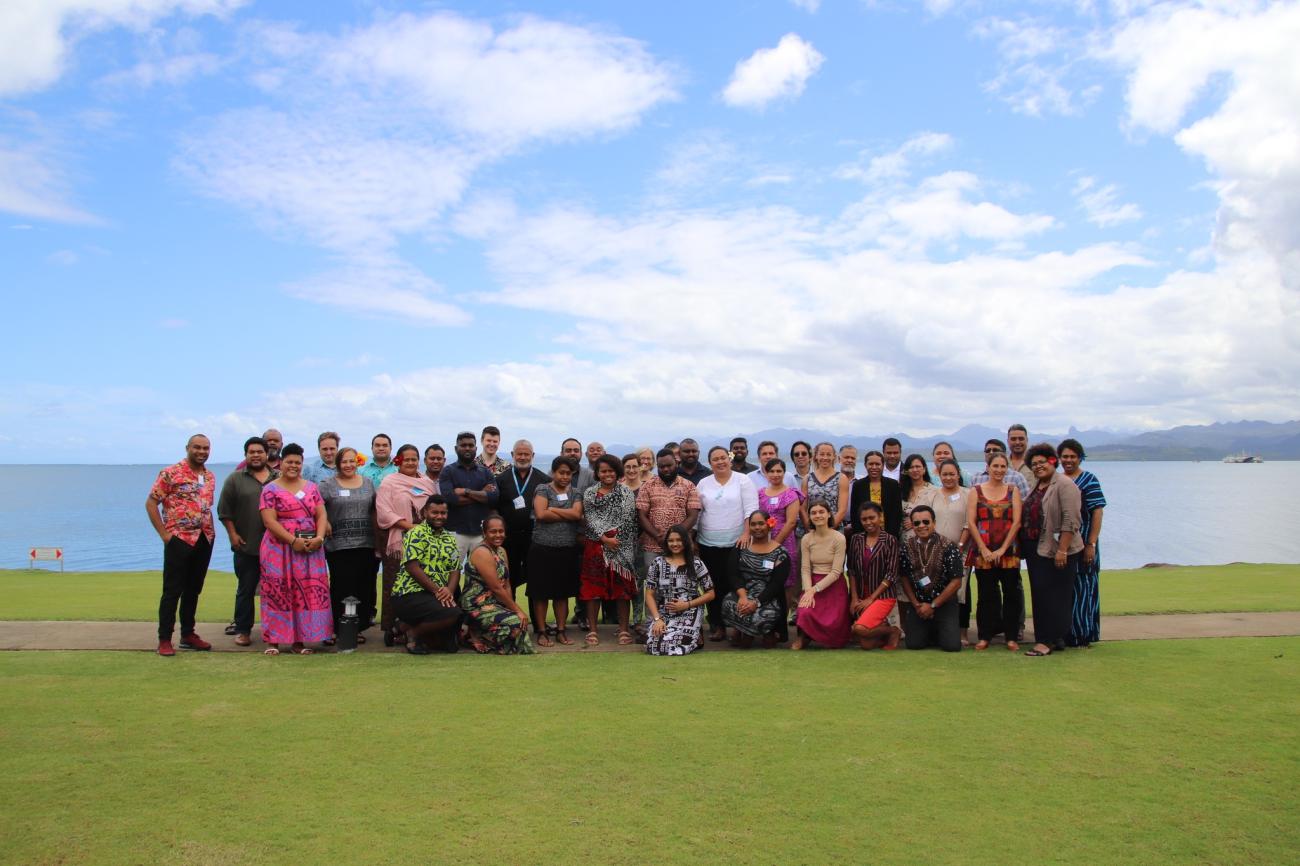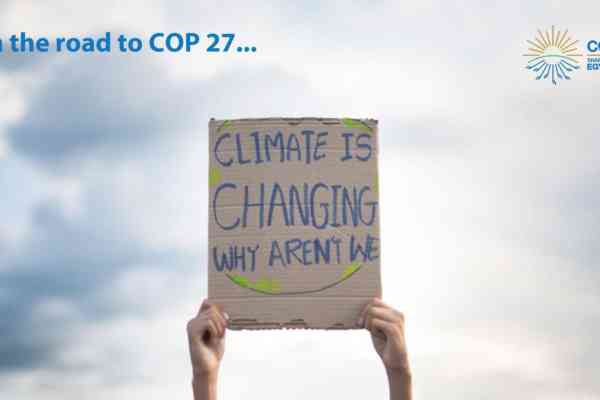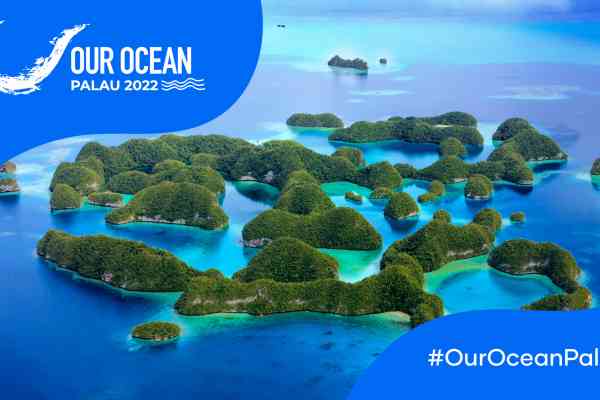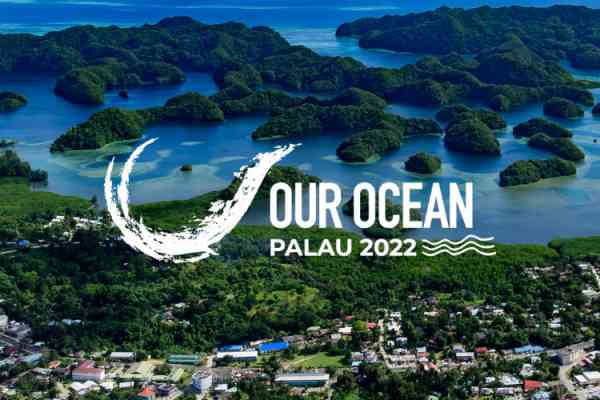Article published in the Revue juridique, politique et économique de Nouvelle-Calédonie. Issue 41 | 2023/1.
From Palau to Kiribati, Pacific Island countries have been severely impacted by rising sea levels, increasing destruction from tropical cyclones and the heightened intensity of both rainfall and droughts. Although these countries are the first victims of climate change, they are involved in active efforts to promote resilience and develop adaptation and mitigation measures. In 2017, 14 countries created the Regional Pacific Nationally Determined Contributions (NDC) Hub to achieve their sustainable development goals (SDGs) and limit global warming to 1.5°C.
***
Over the last decade, the Pacific islands have continued to feel the brunt of global warming with harsh weather conditions and extreme events, despite accounting for only around 0.03 per cent of global greenhouse gas emissions. According to the sixth assessment report issued by the Intergovernmental Panel on Climate Change (IPCC), some countries are experiencing more intense rainfall and faster sea level rise, while others are experiencing drought. The Pacific is thus at the heart of 21st century climate change issues in terms of mitigation and adaptation.
According to article 2 of the United Nations Framework Convention on Climate Change (UNFCCC), mitigation means stabilising greenhouse gas concentrations in the atmosphere at a level that would prevent dangerous anthropogenic interference with the climate system. The IPCC defines climate change adaptation as “the process of adjustment to actual or expected climate and its effects.”
The Pacific nations ratified the Paris Agreement in 2015 and committed to deploy ambitious climate policies which, however, continue to require the support of international aid. To achieve the transition to sustainable development, countries must identify funding needs, understand and assess the policy implications and related reforms, and develop frameworks conducive to mobilising investments.
In order to meet this challenge, the Pacific Island countries established the Regional Pacific NDC Hub in 2017 at Fiji’s behest. It operates as a multi-stakeholder regional platform to establish, communicate and update the NDCs. By relying on its partnerships and expertise, the NDC Hub works in collaboration with governments, civil society and the private sector, enabling each country to achieve its climate commitments.
Whether this translates to investing in renewable energy sources, improving coastal protections systems, or developing early warning systems for natural disasters, each nationally determined contribution by each NDC is tailored to each country’s specific needs. Thus, Nauru is focusing on developing a climate-action policy framework for the agricultural sector (I); Vanuatu is strengthening its environmental policy (II); Palau is implementing sustainable energy solutions (III); and Tonga and the Federated States of Micronesia and their local communities have committed to ensuring effective implementation of their NDCs (IV). All are moving forward towards a sustainable, low-carbon future.
-
Developing a policy framework for climate action in Nauru’s agricultural sector
The agricultural sector plays a major role in the Pacific region because it ensures the population’s food security. Agriculture must adapt to climate change to ensure that production systems are resilient. Such adaptation is also an opportunity, as investments in sustainable agriculture can help improve the sector’s production and revenue.
The island of Nauru, which underwent overmining of its phosphate resources during the 1970s-1990s, chose to include a policy in its NDC that encourages sustainable and traditional agricultural practices, with the goal of using 100 per cent renewable energy by 2050.
The NDC Hub commissioned the Pacific Community, which is known internationally for its technical expertise, to support Nauru in meeting this commitment. SPC thus conducted an inventory of climate-resilient agricultural technologies, assessed the vulnerability of the agricultural sector, and set up training activities for Nauru’s technical staff.
This work resulted in the publication of Nauru’s first Climate-Smart Agricultural Plan, which defines strategic needs and capacity-building priorities. The plan encourages initiatives such as training local farmers, developing agricultural technologies, sharing knowledge, and using traditional agricultural practices to prevent the overuse of soil and natural resources.
-
Strengthening the implementation of Vanuatu’s environmental policies
According to the World Risk Report, Vanuatu is considered the country most exposed to climate change and most at risk of natural disasters. The Government of Vanuatu thus decided to revise its Climate Change and Disaster Risk Reduction Policy (2016-2030) (CCDRR) in the context of its NDC.
The goal of the CCDRR is to establish a national framework that integrates climate change and disaster risk reduction into sustainable development processes. It seeks to improve coordination and planning of programmes, projects and financing among ministries, departments, development partners, universities, civil society organisations and the private sector.
SPC has supported Vanuatu to revise its CCDRR policy and ensure it is consistent with national, regional and global frameworks such as the Paris Agreement, Sendai Framework, Sustainable Development Goals, and Framework for Resilient Development. Using the Organisation for Economic Co-operation and Development’s criteria (relevance, coherence, effectiveness, impact and sustainability), 52 actions set forth in nine national plans and policies were reviewed. The review found that 18 actions in various national plans and policies were fully aligned with the CCDRR, 11 were partially aligned, 19 were not aligned and 27 were indirectly aligned.
The assessment showed that the country had limited financial and human resources and infrastructure to implement the CCDRR. To ensure that communities and stakeholders received accurate, timely and relevant information, the assessment found that early warning systems must be established and awareness-raising and educational actions conducted and contextualised at all levels of society to address the target groups’ specific needs. In addition, human and financial resources must be increased to ensure that the CCDRR was implemented successfully.
-
Developing sustainable energy solutions to reduce greenhouse gas emissions in Palau
The use of renewable energy sources and adoption of green technologies for generating and using energy are key to reducing greenhouse gas emissions. In that context, NDCs often include the goal of developing sustainable energy solutions.
In its NDC, the Government of Palau has committed to achieving absolute emission reductions in the energy sector, also taking into account reductions in the waste and transport sectors. The country seeks to achieve 35 per cent energy efficiency by 2025 and reduce energy sector emissions by 22 per cent as compared with 2005.
With support from SPC, Palau has thus focused on preparing national energy efficiency regulations. They will set standards for energy tests, performance, lighting, and labelling of appliances and other equipment that is imported and sold locally. The regulations also set out the relevant implementation procedures and penalties.
Energy efficiency regulation was examined in a detailed study of existing energy legislation and current policies addressing this issue. Twenty stakeholders from the government, private sector, and development organisations participated in a consultation workshop to strengthen their understanding of the goals described in Palau’s NDC.
The country set up a comprehensive framework for future energy audits. This involved establishing qualification and certification standards for energy auditors, applying quality standards to the energy audit processes and reports and implementing the actions recommended in the audit reports. This framework will help ensure that energy audits are conducted efficiently and accurately and that the energy efficiency measures resulting from them are implemented.
In the NDCs, strengthening vulnerable communities’ climate change adaptation and mitigation capacities is key to ensure their survival and well-being. Vulnerable populations may be defined as those that are most likely to sustain damage, given their limited capacity to adapt to climate change. Consequently, they must be aware of the role that they can play in reducing climate-related disaster risks and understand how to contribute to global sustainable development efforts.
To build awareness among and engage its communities, the Government of Tonga decided to support vulnerable populations by providing them with information and tools to improve their understanding of climate change and its consequences for their lives and way of life. To ensure that this collective effort focuses on including and giving due thought to citizens, the government has produced brochures, t-shirts and an explanatory video in English and Tongan.
The Government of the Federated States of Micronesia is committed to taking gender and social inclusion into account in its communications with the general public. The country launched its updated NDC during COP 27 and particularly highlighted the need to involve communities in decision-making.
In addition to tools and resources to support the efforts of vulnerable communities, Tonga and the Federated States of Micronesia are working to develop inclusive social development plans. These plans seek to address communities’ specific needs in the areas of adaptation to and preparation for climate change, food security, and social well-being.
Ultimately, the NDC Hub is more than just a tool. It reflects the Pacific Island countries’ recognition of and growing action in response to the urgency of climate-related risks. By providing the tools needed to develop and implement their NDCs, it enables them to take the necessary action to reduce their emissions and build a more resilient future.
The NDC Hub is one of many initiatives developed in the region to address climate change. The governments of the Pacific Island countries also rely on several regional partners, including the Secretariat of the Pacific Regional Environment Programme and Pacific Islands Forum Secretariat, to develop renewable energy projects, introduce policies for climate resilience, and expand protected areas. All of these efforts demonstrate the region’s commitment to combatting climate change. The NDC Hub ensures that these actions translate into actual and tangible progress.
***
Nationally Determined Contributions: a special status for New Caledonia
Like all other Member States, France submits its NDC to the European Union (EU), which forwards it to the Secretariat of the United Nations. The French overseas countries and territories (OCTs) (New Caledonia, French Polynesia, Saint Barthélémy, Saint Pierre and Miquelon, and Wallis and Futuna) are not part of the EU, but have the status of a “associated” territories and so not included in France’s NDC. Rather, they submit their commitments to France, which, by way of exemption, submits a second NDC to the United Nations that covers only the French OCTs.
In 2018, the French OCTs’ greenhouse gas emissions accounted for 1.55 per cent of total global emissions. They have jointly committed to limiting those emissions to 8.4 per cent by 2030 (relative to the 2006 level).
New Caledonia intends to reduce its energy-related greenhouse gas emissions, relative to a baseline scenario, as follows:
-15 per cent in the transport sector;
-35 per cent for construction;
-10 per cent for industry; and
-9 per cent for agriculture. In order to achieve these goals, it has established an energy transition blueprint (STENC), which outlines a programme to save energy, develop renewable energy, and reduce greenhouse gas emissions.
***
The NDC Hub: technical support for New Caledonia
The NDC Hub is a support platform dedicated primarily to the Pacific region, excluding the overseas territories. However, it does encourage knowledge and and experience sharing among all of the territories, including the French overseas territories (New Caledonia, French Polynesia and the islands of Wallis and Futuna).
As part of a call for projects issued by the French Pacific Fund, the NDC Hub will support these territories in developing their climate policies. The initiative is co-financed by SPC and the three French Pacific territories.
In New Caledonia, this support will make it possible to:
-update national greenhouse gas initiatives;
-implement priority climate action; and,
-support the participation of New Caledonian technicians in the annual NDC Hub focal point meetings and technical training designed specifically for the Pacific.
***
Anne-Claire Goarant
Climate Change and Environmental Sustainability Programme Project Manager, SPC
Maeva Tesan
Information, Communication and Knowledge Management Officer, Climate Change and Environmental Sustainability Programme, SPC
Roxane Degueuse
Liaison Officer, Regional Pacific Nationally Determined Contribution Hub, SPC
Peggy Roudaut
PROTEGE Programme Manager, SPC




